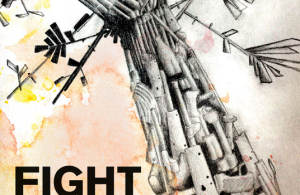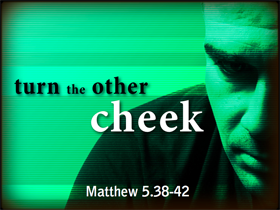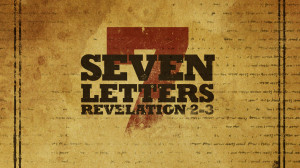 So today we come to the conclusion of our 4 week series For, With, One of, In. In the incarnation of Jesus, we see the way that God and Jesus interact with all of humanity. First of all, God is for us. Secondly, God is with us. Thirdly, Jesus became one of us. And lastly when we receive him, Jesus comes to live in us. When we follow this model of incarnational living we become for people, we are with people, we become one of them, so that Jesus then comes to live in them. And so we have spent a great deal amount of time talking during this series of what it means to live an incarnational life.
So today we come to the conclusion of our 4 week series For, With, One of, In. In the incarnation of Jesus, we see the way that God and Jesus interact with all of humanity. First of all, God is for us. Secondly, God is with us. Thirdly, Jesus became one of us. And lastly when we receive him, Jesus comes to live in us. When we follow this model of incarnational living we become for people, we are with people, we become one of them, so that Jesus then comes to live in them. And so we have spent a great deal amount of time talking during this series of what it means to live an incarnational life.
The first week we talked about the fact that God is actually for us. All too often we have a mistaken view that God the Father is just waiting for us to screw up so that he can crush us. That he is for us as long as we don’t screw up or get out of line. Then when we do, watch out. The Father’s anger comes raining down. But if we are to believe John 3:16-17 (especially verse 17) then we have to believe that Jesus is absolutely for us. And then when we realize that, and seek to live a life that is informed and shaped by God being for us, we become for people. Just ask the regular person on the street if they believe the church and Christians are for people or against them, and we all know what they will say. That Christians are against them. In fact, it is true that we are known more for what we are against than what we are for. How do we change that? We realize that God is for us (and for all people) and then we become for people.
Then we spent time talking about God being with us. Emmanuel, God with us. Jesus. What we celebrate at Christmas. That God the Father isn’t just some deity in the sky who is distant and unapproachable. He showed the Israelites that he was with them on their journey from Egypt to the Promised land through the presence of a pillar of cloud by day and a pillar of fire by night. And that God took them through the desert. We talked about the fact that God meets us in the wilderness as well. And that he is with us and calls us then to be with people.
Last week we talked about God being one of us in the person of Jesus. How he came to earth, taking on flesh and blood and moving into the neighborhood. And that Jesus truly understands what it means to be human. He became one of us and calls us who follow him to incarnate and become one of the people, networks, and neighborhoods that we are a part of. That we are already one of.
This week we finish our series For, With, One of, In by looking at In and to do that we’ll use one verse from the Apostle Paul’s letter to Galatian church. So let’s look at Galatians 2:20 and see what it might say about God living in and through us. Galatians 2:20 says, “I have been crucified with Christ and I no longer live, but Christ lives in me. The life I now live in the body, I live by faith in the Son of God, who loved me and gave himself for me.”
To truly understand this one verse in chapter 2 of Galatians we need to take a look at what the Apostle Paul was writing about in this letter. Paul is writing to the Galatian church regarding their position before God, what set them in right relationship with God. The Galatian church had Judaizers come and teach them that they not only needed to follow Jesus, but that they also had to abide by certain Old Testament rites, especially circumcision. You see Judaizers were Jewish Christians who believed, among other things, that a number of practices from the Old Testament were still binding in the New Testament church. And Paul here in this letter to the church at Galatia is stating that it is by grace through faith alone that people are justified and it is by faith alone that they are to live out their new life in the freedom of the Holy Spirit. It is not the law, and the Old Testament rituals that set us right with God and redeems us. It isn’t whether we are Jewish or Greek, our heritage that puts us in right relationship with God. It is Christ, Christ crucified and Christ alone that redeems, reconciles, sets us right, and by which forgiveness comes. That is what Paul is trying to get across to the followers of Jesus in the Galatian church.
What Paul is getting at in verse 20 is that he realized that on the cross a great exchange happened. He gave Jesus his old try to be right before God by the law life and it was crucified on the cross. Then Jesus gave Paul his life to live. Christ came to live in him. So Paul’s life wasn’t his anymore. It belonged to Jesus. Paul didn’t own his own life, that life was dead, he was simply stewarding or managing the new life that Jesus gave him by his death on the cross. Martin Luther puts it this way, “Faith connects you so intimately with Christ that He and you become as if you were one person. As such you may boldly say ‘I am now one with Christ. Therefore, Christ’s righteousness, victory, and life are mine.’ On the other hand Christ may say ‘I am that big sinner. His sin and death are one because he is joined to me and I to him.”
So we who are in Jesus, our old self was crucified with Jesus, and our new self is bound with Jesus. Our old identity is dead, and our new identity is in Jesus. Whatever you were before Jesus, you are no longer that. We are the Messiah’s people with his life now at work in us. If we are ‘in” the crucified Jesus that means that our previous identities are irrelevant. They are to be forgotten. And if we have a new identity, one drawn from the life, death and resurrection of Jesus and if our new identity is because Jesus now lives in us, we have a different life. Our old life, lived under the law (think about why this letter was written- the OT ceremonial laws that the Judaizers wanted the Galatian believers to follow) is now dead. Now we are alive to Jesus Christ and he is alive in us.
And so if Jesus resides in us, if he comes to live within us, that means our life is no longer ours. It is his. And that life, the life of Jesus, lived through our lives need to be cruciform. What is the cruciform life? It means a cross shaped life. Our life is shaped by the cross into the shape of the cross. The cross, representing the life, death, and resurrected life of Jesus is the soul and life shaping core of the disciple’s existence. What Jesus did while walking on this earth is what he wants to do in and through us out in the world. How he lived his life while on earth is how he is calling us to live, since he has taken up residence within us. Taking up his home with those of us who have received him into our life.
So maybe the first thing that I need to ask is have you been crucified with Christ, and have you allowed Jesus to take up residence within you? To give your life for his life? To take up your cross and follow him? To begin living a cruciform life, a life shaped by the cross into the shape of the cross? If not, that is the first thing that you need to do before looking at anything else or hearing anything else that I say. Because you can’t seek to live out this For, With, One of, In reality out in the world, in your neighborhood, networks, and friends unless the reality is that you have received Jesus in your life. Have you traded places with him? Come to a place where your old life is dead, on the cross with him. And that your new life is Jesus living in and through you? If not, I pray that today you would give your life to him, and become a steward of the new life in Jesus that he will give back to you. (This is a beautiful picture of what we do when we baptize someone. Like the other week when Luis got baptized. He went into the water. His old life dying on the cross with Jesus. He came out of the water with Jesus’ new life within him).
And so when we do that, when our life is crucified with Jesus, we receive the new life through Jesus. The new life of Jesus living in and through us, we take on a new name. The name of Jesus. We become Christians, in the best and truest sense of the word, which means little Christs or little Jesus-es. (That is how the early followers of Jesus got their name because they looked like Jesus in the way that they lived his life in and through them).
And so as we have been walking through this incarnational journey, hopefully we have all begun to understand the implications of this journey. The implications of God being for us, with us, and one of us which then often times leads us to invite Jesus to be in us. And that changes everything. God passes the DNA of Jesus into our lives. Because we then possess the DNA of Jesus within us, we are empowered to live as Jesus lived while here on earth. And so when we then possess the DNA of Jesus within us, when our old life is crucified with Jesus, and our new life is cruciform, looking like the cross, then we, like God, must be for people, we must be with people, we must be one of people, so that the DNA of Jesus can be passed through our lives into the lives of others and Jesus will come and live in them as well.
So as we have been walking this incarnational journey together over the last 4 weeks who has God been laying on your heart? Who do you need to walk through this process with (not in a formal way or even an explicit way). But who needs to know (experience) that you are for them, that you are with them, that you are one of them with the hope and dream that the Jesus that lives within you can come and live within them? Who is God calling you to be on mission for? Who is God calling our community to be on mission for? Who is God calling us to be for? Who is God calling us to be with? Who is God calling us to be one of? So that the Jesus that lives, and breathes through our Veritas community, can come and live, and move and have his being in their lives?
And maybe that person is you. Maybe these four weeks have been for you. That you are the person that needs to first realize that God is for you. That he isn’t against you. That he is with you. That he meets you in the mess, the pain, the struggle, the wilderness, and the beauty as well. That he became one of us, took on flesh and blood and moved into the neighborhood. He understands everything that you go through and because he came as a human (all the while still being God) he can be the only one who can set us right with God. And because he is for you, with you, and one of you, he wants to come and live within you.
So let’s spend some time discussing, talking, and applying what it means that your old life is crucified with Jesus and that he is now living in and through you. Let’s talk about who God may be calling us to walk through this process of For, With, One of, In with. And let’s see what part of this series spoke to you the most and what you are sensing God’s call on your life is through the series.
1. What thoughts, comments, insights, questions, etc… does the Scripture and/or message raise in your mind?
2. Who is God calling you (and us as a community) be be For, With, One of so that Jesus comes to live within them? Who do you need to walk through this process with?
3. What is God saying to you and what are you going to do about it? What is God saying to us and what should we do about it?
4. What stood out to you during our For, With, One of, In series? Which one of the 4 do you need to internalize and externalize?





